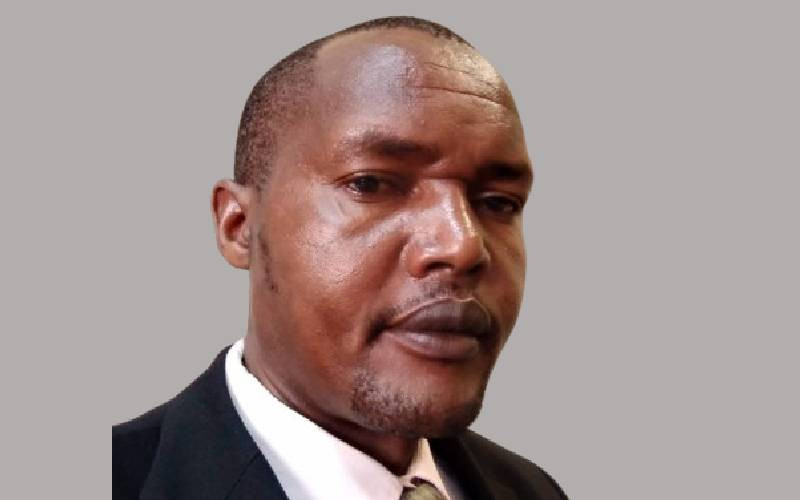One can forgive a child born in a remote village who calls a cow a mootu, because that’s what he heard from a cartoon between power blackouts. But one truly struggles—visibly, intellectually, emotionally—to forgive a fully-grown Kenyan professor, alleged reader of Frantz Fanon, Chinua Achebe, and Ngũgĩ wa Thiong’o, who, when introducing himself, performs a vocal gymnastic routine that sounds like it’s sponsored by the BBC World Service and rehearsed in front of a cracked mirror.
“I’m Professor John-Paul Joseph Mark Abel Wanjala Lincoln Mugisha O’Malley,” he declares with a nasal pseudo-British-American drawl, laced with the accidental twitch of the tongue that betrays his roots—deep from Bungoma, where a cow is both food and dowry, and where his grandfather still calls the fridge “firiji” with cultural confidence. This is not fiction. This is us. This is what we’ve become.
Let’s not lie to each other—colonialism never left. It simply rebranded. It took a sabbatical, polished its shoes with imported kiwi, sprayed itself with “Bleach No. 5,” picked up a British Council scholarship, and found a comfortable home—in our minds. Our campuses, instead of being breeding grounds for mental liberation, have become audition halls for accent competitions. The sharpest minds now limp—not physically, but intellectually—dragging chains of accent superiority, name length, and pseudo-scholarly arrogance behind them.
Follow The Standard
channel
on WhatsApp
You’ll meet a Kenyan ambassador, formerly known simply as Kiptoo from Kapkoros, who now insists he is Ambassador Kevin-Patrick de Soufflé Kip-too Farquharson III, trained at “Yale, Oxford, and in a spiritual sense… Hogwarts.” You want to ask gently, Mbona unatesa ulimi hivyo? Why are you punishing your tongue like that? Can the Queen even pronounce your full name?
It gets worse in classrooms. During introductions, one student says: “Hi, I’m Brenda Muthoni, born and raised in Kayole.” Another student jumps up immediately, “I’m Pascal-Kevin-Bruce Makori-McMillan, a media and communication specialist, currently finalising my thesis on post-structuralist cinematographic theory in neo-liberal African resistance under Western gaze and techno-colonialism.” You sit back and think: Kwani tuko UN?
We’ve been told education liberates. That it opens the mind. Gives tools. Breaks chains. Yet somehow, the more degrees some people acquire, the more detached they become from their people, their identity, their mother tongue. You know them. They carry their MBAs like gospel, their Western names like amulets, and their fake accents like scars of academic war. You hear them speak, and suddenly, rural becomes “loo-lal”, culture becomes “calchuh”, and the tongue folds like an origami paper from confusion. But your ears don’t lie—these are the same people who chewed sugarcane and chased cows barefoot.
Even those who have read Achebe’s The African Writer and the English Language or Ngũgĩ’s Decolonising the Mind still want to be judged by how far their degrees flew them from Nairobi, not how well they serve their communities. Ngũgĩ dropped “James.” Achebe dropped “Albert.” Why? Because they woke up. They realised colonialism was not just about flags, or guns, or white skins—it was in the mirror. In the passport. In the tongue.
And now we have CBC, CBE, and all manner of abbreviations that look good on policy documents but still manufacture colonised children with iPads. They TikTok their lives away, floss with French fries, and study global literature while never touching Achebe, Soyinka, Mariama Bâ, or Fanon. If rebellion is not taught, docility becomes default. The new “educated” Kenyan is a mini-version of his fake-accented professor, sipping cappuccino in Umoja, ordering croissants in Eastleigh, and calling his grandmother “that old lady back in the province.”
And beware the diaspora syndrome. Someone studies abroad for 18 months—say, a Master’s in Cardiff—and returns sounding like they swallowed BBC Radio 4. They arrive at Jomo Kenyatta Airport and ask, “Where can I get a cab? I can’t find the Kiswahili word for digital infrastructure.” Same lips that once recited “Tenzi za Rohoni” now suddenly can’t say githeri without struggling.
Until that funeral. Where a drunken uncle bellows from behind the nyama choma table: “Eh! Onyango, si ulete hiyo chupa ya kachumbari haraka!” And in that moment, the tongue remembers. The accent melts. The coloniser leaves the mouth in shame. Because lugha haipotei kama hisabati ya Form Four (language doesn’t disappear like Form Four maths).
Even our political class has caught the bug. You’ll hear someone say, “I’m Hon. Dr. Beryl-Melinda Joyce Kiplang’at Kennedy, MP, PhD, OGW, CBS, and Fulbright Fellow…” but visit her rural primary school and the chalkboard is still a cracked wall painted black with charcoal. Girls are still squatting on stones during periods. Because while her education travelled, her conscience stayed behind. She isn’t educated. She’s just well-travelled.
It is heartbreaking, laughable, and tragic that we’ve equated foreignness with brilliance. The deeper your accent, the more serious you’re taken. The more Western your name, the more prestigious your application looks. Yet, true intellect doesn’t copy. It questions. It liberates. It remembers.
Let me remind you—real learning must reflect identity. You should never bleach your name, nor wash your tongue in imported vowels to appear learned. Next time you hear someone painfully pronouncing “schedule” as “skedjule”, don’t be impressed. Ask them gently, “Umezaliwa wapi?” Let them revisit their roots.
And so I stand here. From the heart of a pastoralist manyatta in Pokot, near the Uganda border. A Doctor of Communication, yes. But I still know how to milk goats, how to drink blood mixed with milk straight from a gourd.Because you call us cattle rustlers, but I will not disown my people. I will speak like them. I will dress like them. I will think like them.
Because real education should not erase your identity. It should awaken it.
The writer is a lecturer at Moi University
Follow The Standard
channel
on WhatsApp
By Chang’orok Joel


